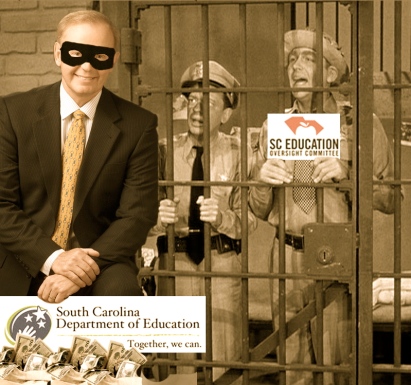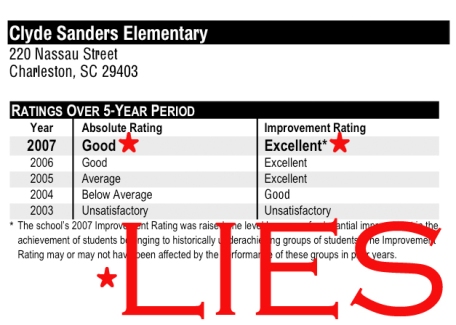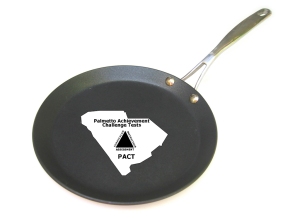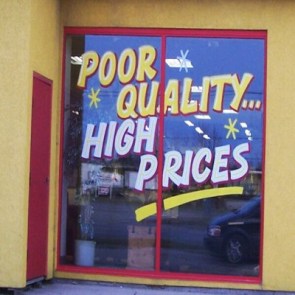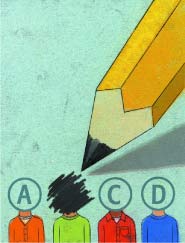The sign in front of Charleston’s Sanders-Clyde Elementary school read “where every child is more than a test score.”
As state police continue their investigation of systematic accountability test cheating at the school, former Principal MiShawna Moore has gone on record denying the charges.
In a recent interview with the Post and Courier‘s Diette Courrege, Moore (lawyers by her side) complained the investigation had greatly inconvenienced her.
Moore even suggested that the dramatic drop in scores after her departure and the arrival of outside oversight was the result of some children taking their behavioral medicine immediately before the tests, not earlier in the day.
She also complained that “teachers weren’t allowed to give students encouragement, snacks were prohibited, meals were skipped, and breaks were limited.” Continue reading



